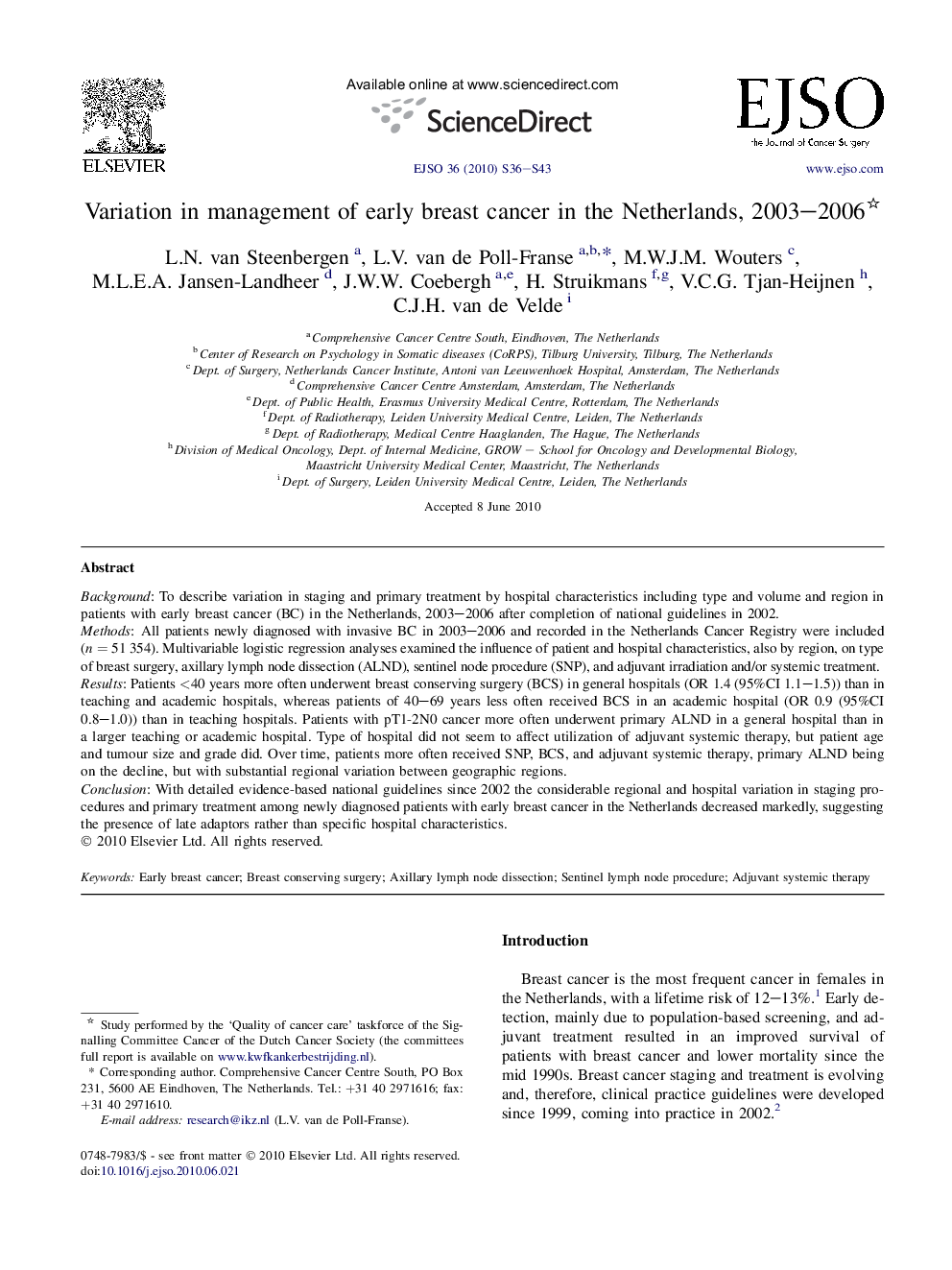| Article ID | Journal | Published Year | Pages | File Type |
|---|---|---|---|---|
| 3985933 | European Journal of Surgical Oncology (EJSO) | 2010 | 8 Pages |
BackgroundTo describe variation in staging and primary treatment by hospital characteristics including type and volume and region in patients with early breast cancer (BC) in the Netherlands, 2003–2006 after completion of national guidelines in 2002.MethodsAll patients newly diagnosed with invasive BC in 2003–2006 and recorded in the Netherlands Cancer Registry were included (n = 51 354). Multivariable logistic regression analyses examined the influence of patient and hospital characteristics, also by region, on type of breast surgery, axillary lymph node dissection (ALND), sentinel node procedure (SNP), and adjuvant irradiation and/or systemic treatment.ResultsPatients <40 years more often underwent breast conserving surgery (BCS) in general hospitals (OR 1.4 (95%CI 1.1–1.5)) than in teaching and academic hospitals, whereas patients of 40–69 years less often received BCS in an academic hospital (OR 0.9 (95%CI 0.8–1.0)) than in teaching hospitals. Patients with pT1-2N0 cancer more often underwent primary ALND in a general hospital than in a larger teaching or academic hospital. Type of hospital did not seem to affect utilization of adjuvant systemic therapy, but patient age and tumour size and grade did. Over time, patients more often received SNP, BCS, and adjuvant systemic therapy, primary ALND being on the decline, but with substantial regional variation between geographic regions.ConclusionWith detailed evidence-based national guidelines since 2002 the considerable regional and hospital variation in staging procedures and primary treatment among newly diagnosed patients with early breast cancer in the Netherlands decreased markedly, suggesting the presence of late adaptors rather than specific hospital characteristics.
